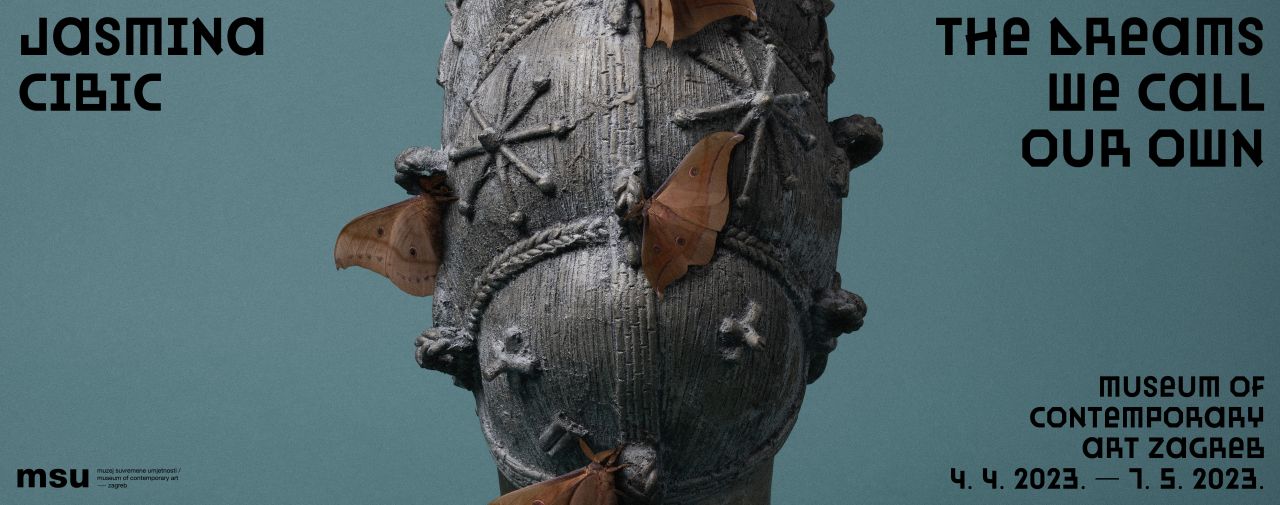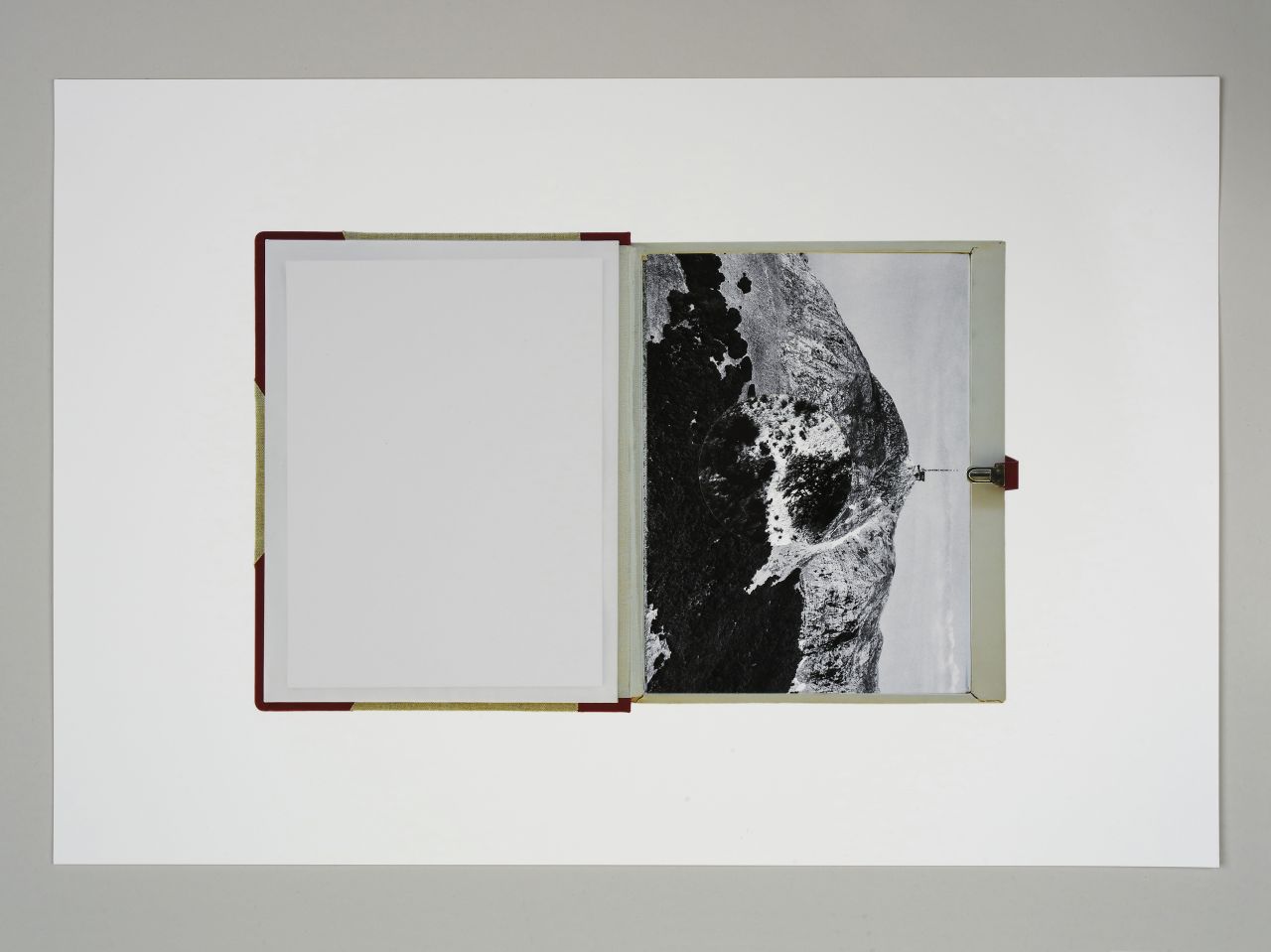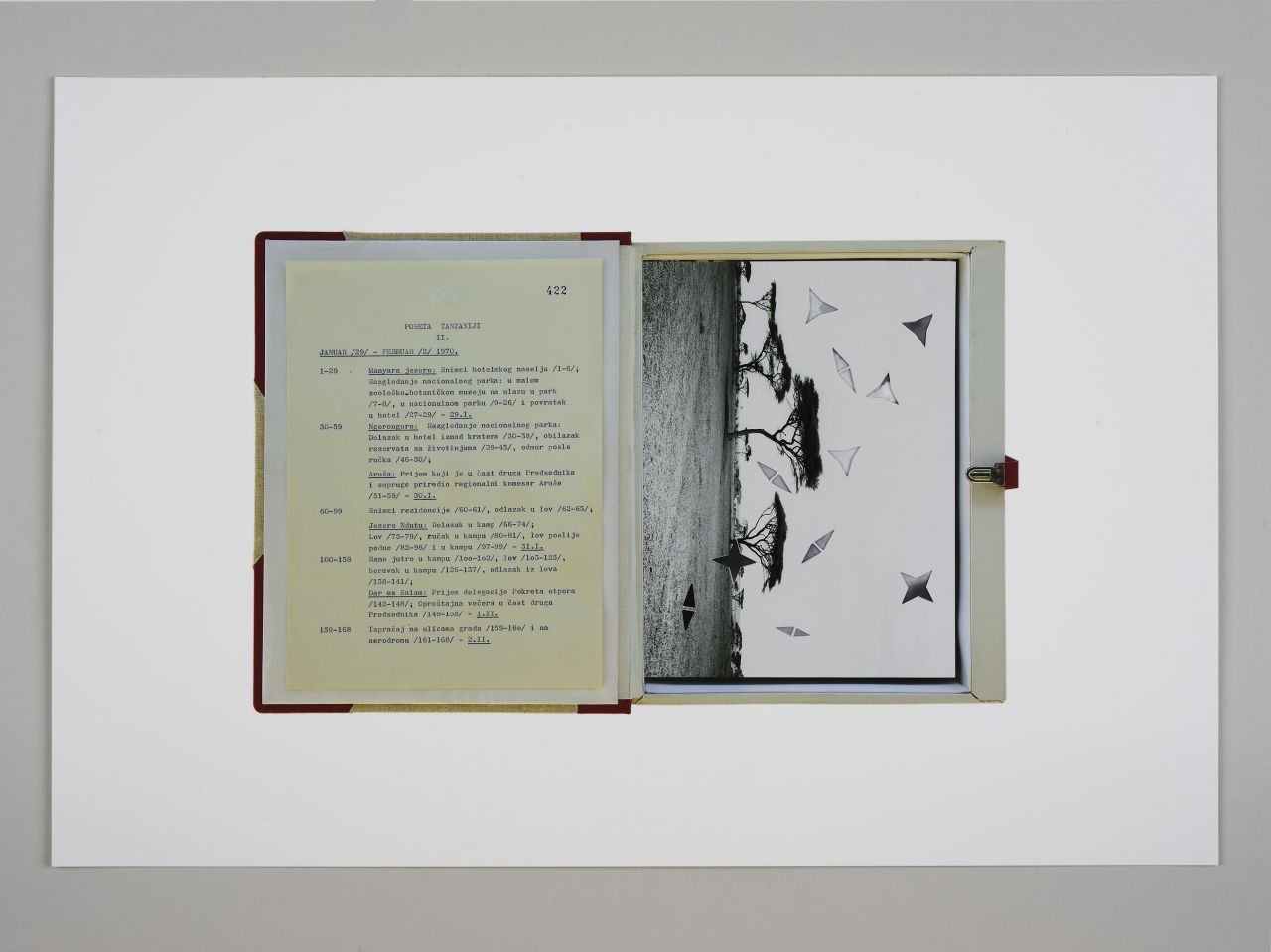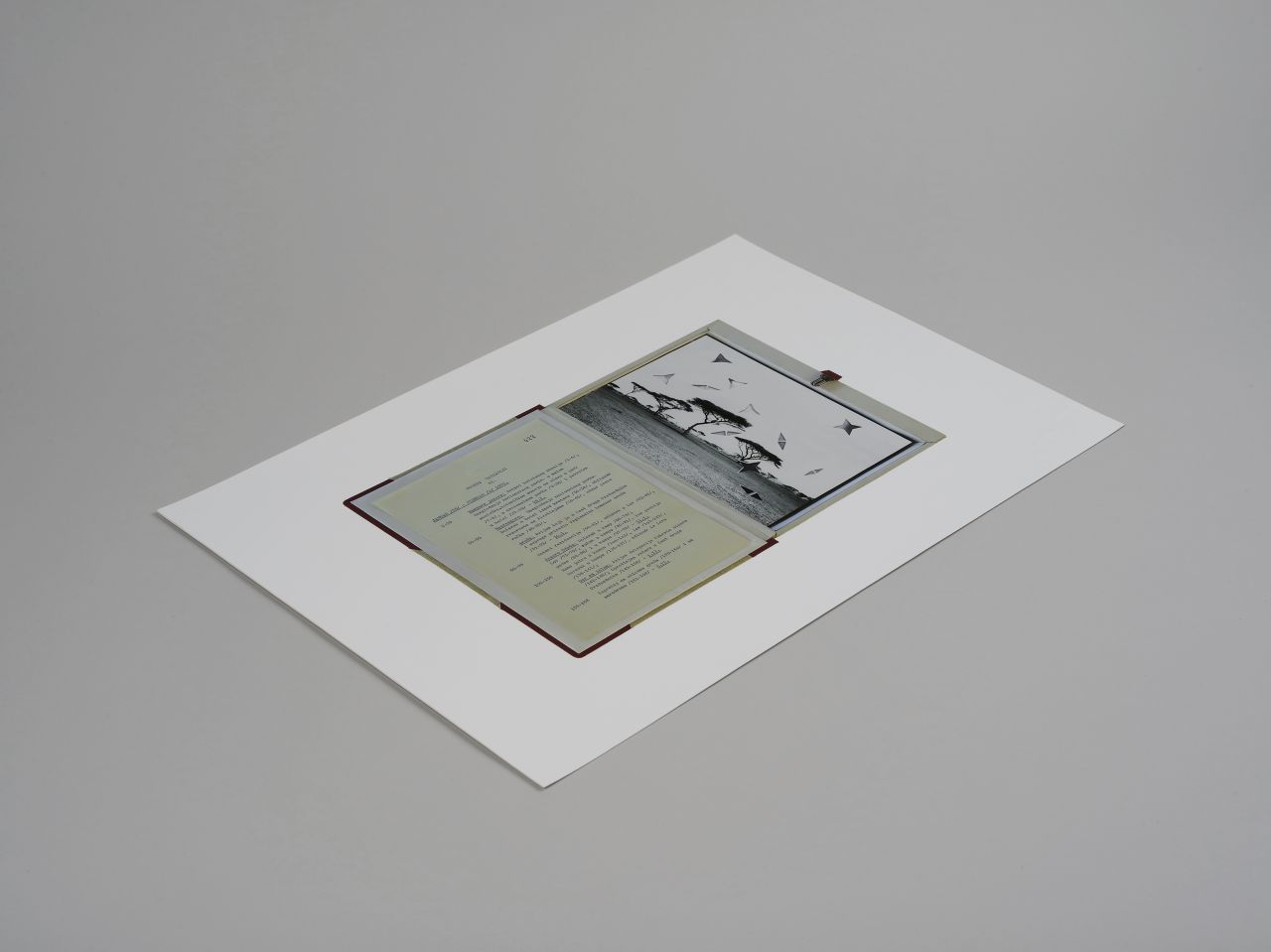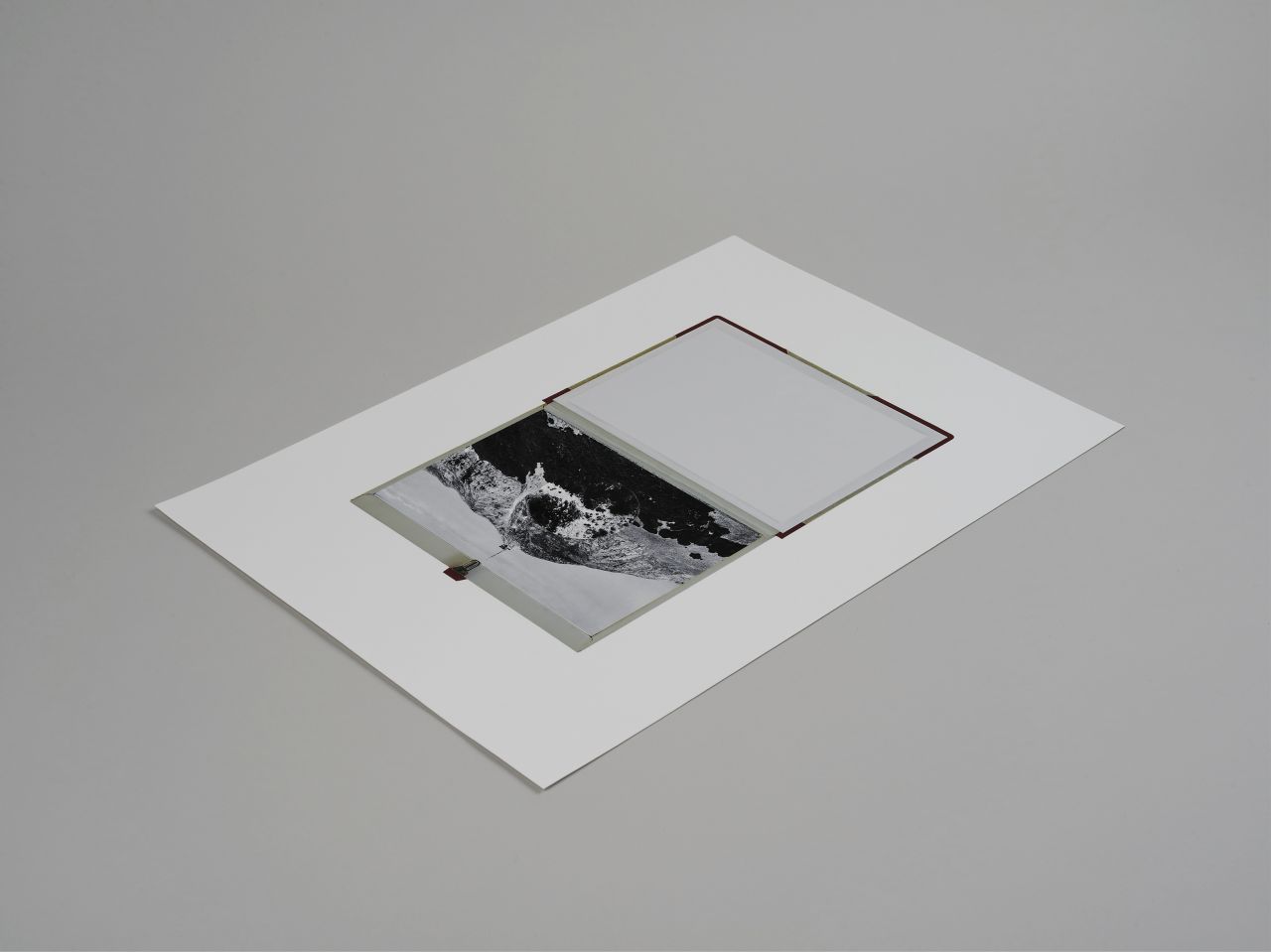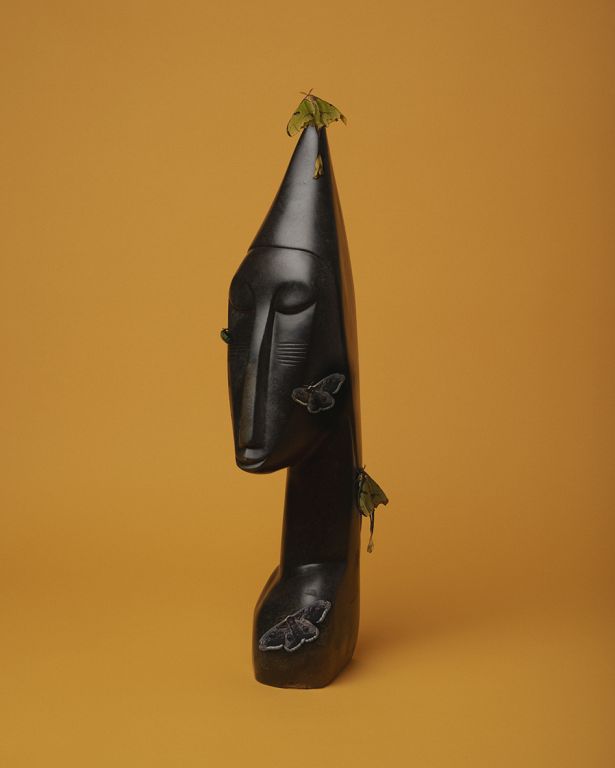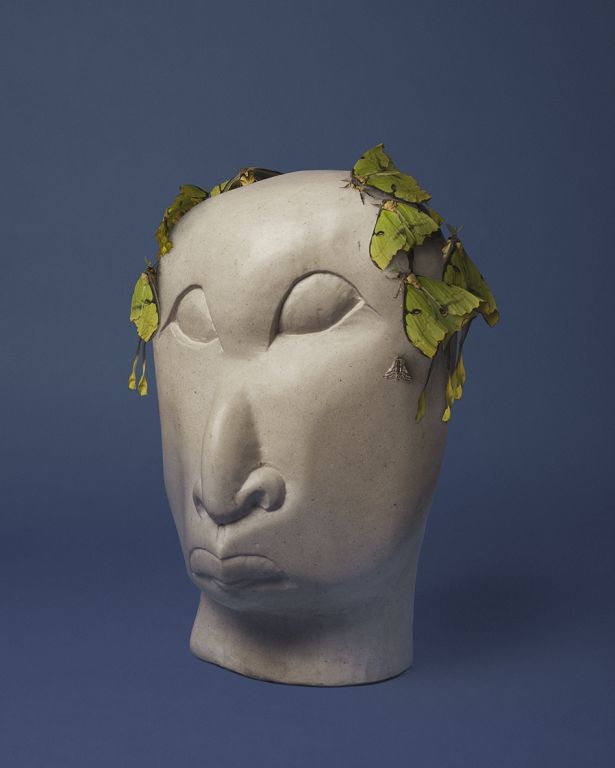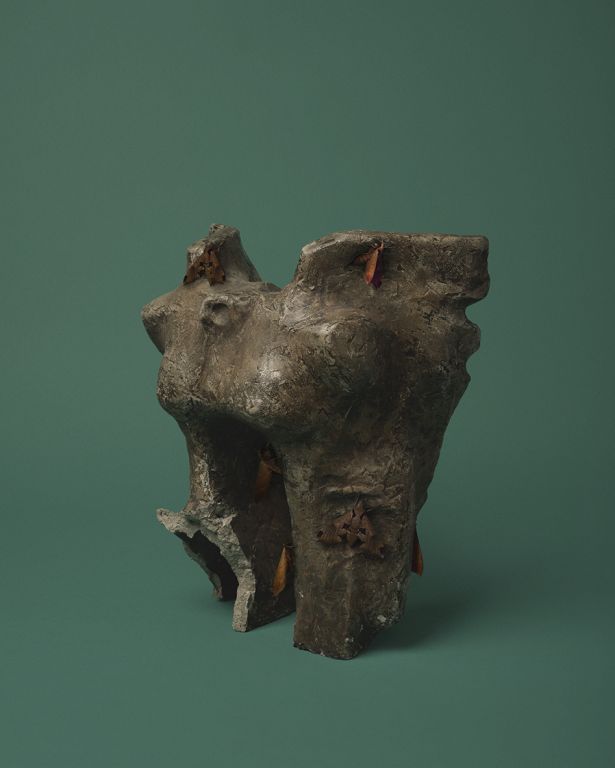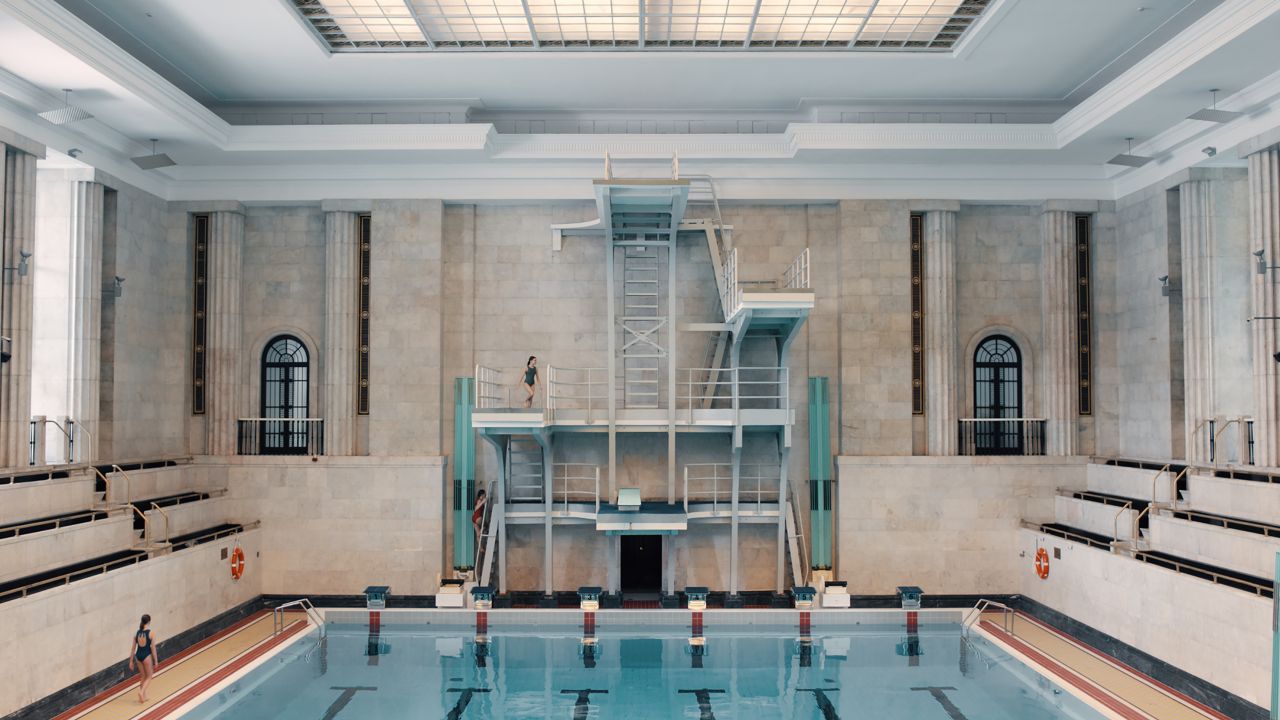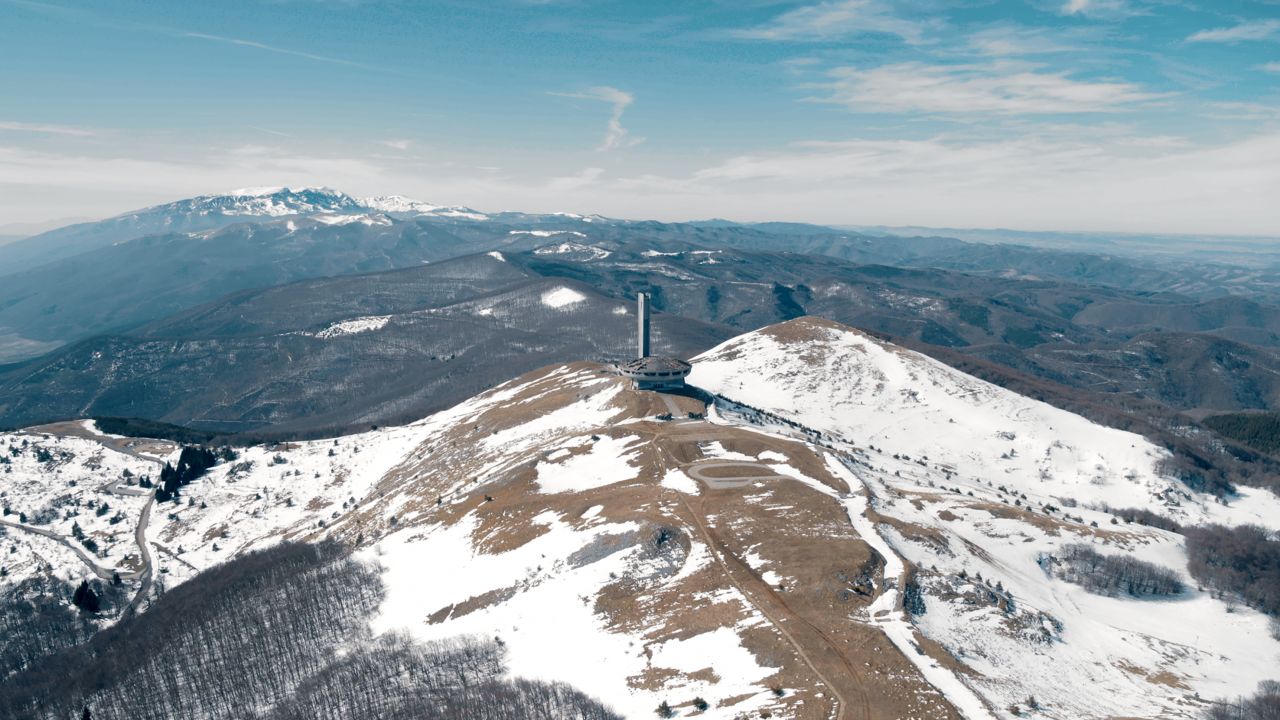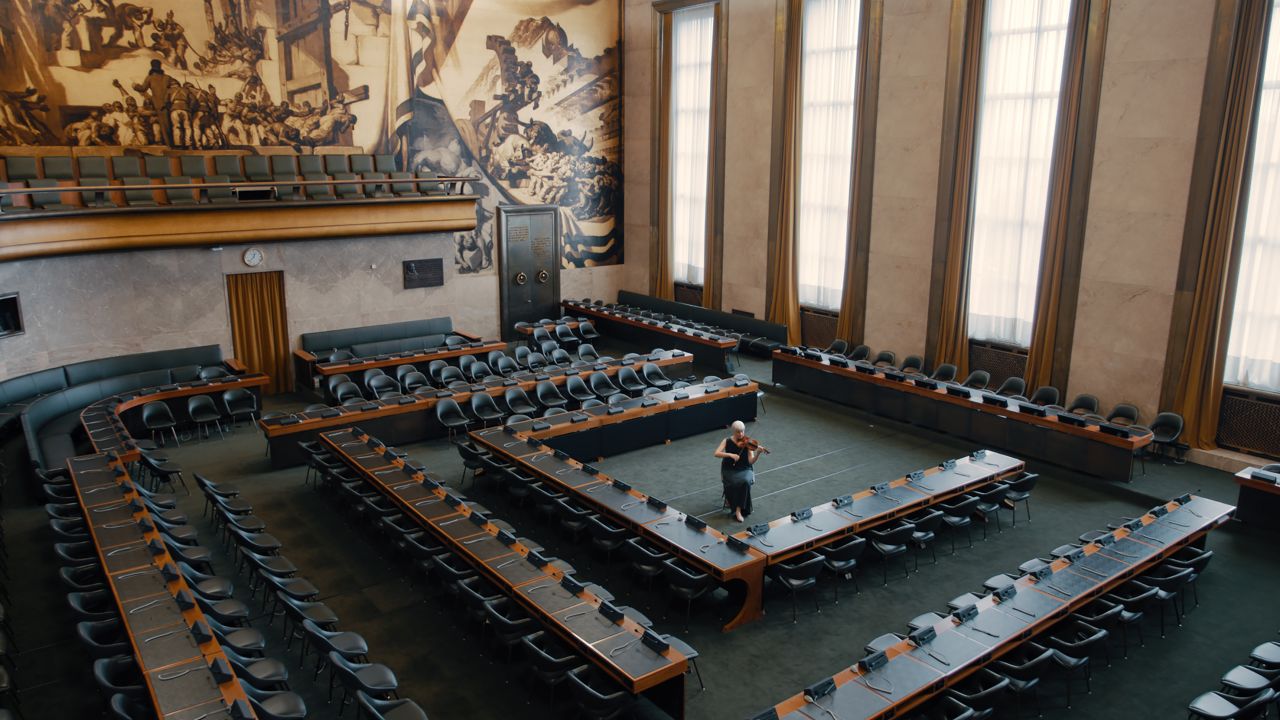The exhibition The dreams we call our own sheds light on the artist’s performative interventions into archives and other historical ready-mades (a piece of art or architecture taken in the context of its time), from which she constructs new plots and weaves feminist narratives. Through this, Cibic underlines the alternative world building potential she continuously seeks in historical traces with a view to serve our present and inform our future.
At the centre of the exhibition is Cibic's acclaimed film The Gift, which is presented in dialogue with two bodies of works on paper: a series of photographs and a series of collages which base themselves on two archives that were both constructed from gifts and donations: the collection of the Art Gallery of the Non-Aligned Countries held at the Centre for Contemporary Arts in Podgorica (the only official collection of artworks donated by heads of states, cultural workers and artists from the countries of the Non-Aligned Movement) and the photographic archive of Yugoslavia’s former president Josip Broz Tito (1892-1980) held at the Museum of Yugoslavia, Belgrade. Both archives present collections that acted as a binding mechanism between political and social intents; between emerging nations, cultural workers and their audiences.
Cibic’s works on paper form an installation within the first room of the exhibition – an antechamber to the film – which is enveloped with dark curtains and dimly lit. On the walls hang a series of photographic portraits of a selection of sculptures from the collection of the Art Gallery of the Non-Aligned Countries depicting the sculptures of emerging mother-nations; female torsos, busts and heads. Photographed on colourful backgrounds, they stand reminiscent of flags and national iconographies, but also contain references to darkness, decay and corrosion, as they are coated by various species of moths, referencing historic vanitas painting – a reminder of all there is to lose in the act of forgetting past potentials of alternative world building.
Within the centre of the room stand vitrines displaying a series of collages Cibic has created from her photographs of the albums gifted to the former president Tito by his official photographers. These artists, who were ‘employed by the state’, had the task of following the Yugoslav diplomacy across the Non-Aligned world to document the scenographic backdrop created for the newly proposed political and diplomatic alliance. Cibic manipulates her photographs through collage, cutting symbols into them alongside aesthetic vocabulary of the Non-Aligned Movement, therefore editing the various ‘nationally representative’ landscapes to reveal alternative angles and suggest speculative futures.
Passing through this antechamber, the visitor arrives at a theatrical installation of Cibic’s film The Gift; a dystopian drama that navigates through the history of political gift giving during moments of Europe’s identity crises. The film follows an artist, a diplomat and an engineer who pitch their ideas for the perfect gift to heal a divided nation; a gift both aesthetically impressive and politically adequate. One that could reconcile the towering divisions in national identity in times of deep crisis.
Drawing its dialogue from historical speeches by politicians, diplomats, architects and artists, The Gift questions whether culture, in the service of a nation, can be anything but a Trojan horse for covert diplomacy and political interests. The film moves between several iconic buildings each conceived as a gift in its own right: Oscar Niemeyer’s French Communist Party Headquarters in Paris, the Palais of the Nations in Geneva, the Palace of Culture and Science in Warsaw and Mount Buzludzha in Bulgaria.
The carefully curated works within the exhibition meet to interrogate national and transnational consciousness production, pouring forth the question of resilience of cultural production over its usage as a pawn in permutations of political and national interests.
The exhibition is supported by Projekt Atol, Ministry of Culture of the Republic of Slovenia, Mestna občina Ljubljana, Friends of Nomad, Maistra Collection Rovinj, Museum of Yugoslav History, the Art Collection of Non-Aligned Countries Laboratory project at Centre of Contemporary Art Montenegro and the Croatian Audio-visual Centre.
The Gift is co-commissioned and co-produced by macLyon, FLAMIN Productions through Film London Artists’ Moving Image Network (with funding from Arts Council England), steirischer Herbst ’19 and co-produced with Waddington Studios London. Supported by Muzeum Sztuki in Łódź, Northern Film School - Leeds Beckett University, UGM Maribor Art Gallery, Cooper Gallery - Duncan of Jordanstone College of Art & Design - University of Dundee, Projekt Atol, Museum of Yugoslavia, United Nations Geneva, Espace Niemeyer and Palace of Culture and Science Warsaw.
The exhibition is part of the Cinematographies of Resistance project and a multiannual collaboration between the Subversive Festival and the Museum of Contemporary Art Zagreb, which was launched in 2018 by curators Dina Pokrajac and Leila Topić. Cinematographies of Resistance represent international film authors whose work is created at the intersection of strategies and practices of contemporary art and film. Cinematographies of Resistance are interested in authorial positions that resist mainstream canons and are characterized by intermediality and intertextuality of approach, openness to different engaged topics, and finding new models against established ways of thinking about film and multimedia art. Works and video installations by artists Maud Alpi, Sabine Mikelić and Nicole Hewitt have so far been presented as part of the Cinematographies of Resistance.
Curated by Leila Topić and Jasmina Cibic
Collaborator: Dina Pokrajac
Coordinator: Daniela Bilopavlović Bedenik
